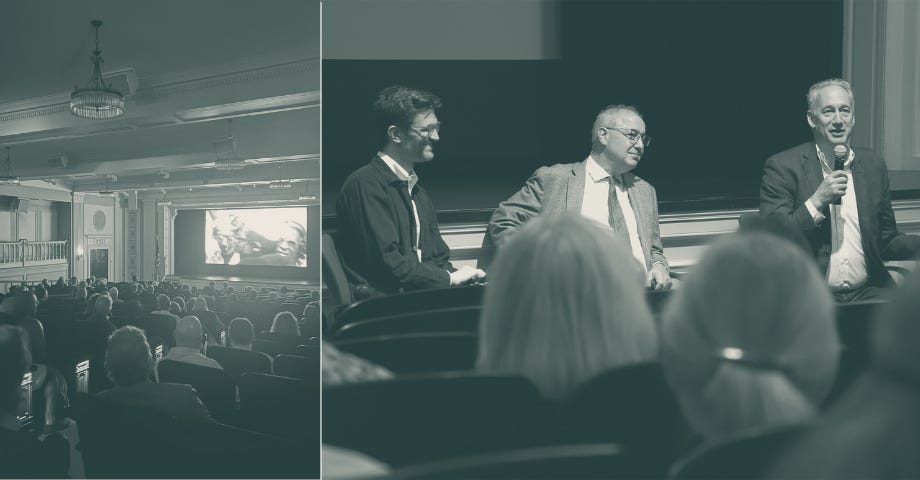The Burnett seat and Chicago’s shameless tradition of hereditary rule
No other big American city has had more political dynasties than Chicago. Because no other big American city treats their mayor like a king.
How are political dynasties born?
In Chicago, it all starts with the mayor’s pen.
The Cullerton seat, Austin seat, Laurino seat, and Mell seat were family affairs that controlled their wards for decades.
All it took was a simple trade: In return for favors to the fifth floor, the mayor appointed your kin to take over your seat in City Council.
Chicago saw the birth of another Council dynasty this week. And just like the birth of every other political dynasty in the Council, it happened through a process that does not exist in any other major American city.
A simple trade
Ald. Walter Burnett, 27th Ward, is the longest-serving member of City Council.
And it came as a surprise to some when he accepted the position of vice mayor for the unpopular Brandon Johnson in 2023.
Historically a ceremonial role, the vice mayor is next in line to the mayor’s office in the event the sitting mayor cannot serve. But Johnson also made Burnett one of his chief liaisons in the council and defenders in the media.
One recent example was Burnett’s vocal support of Johnson’s $830 million borrowing plan, which makes no payments on the debt for the remainder of Johnson’s term and no payments on the principal for 18 years after that – ballooning the total cost of the deal to $2 billion.
"I don’t understand why everything we try to do the way it has been done over the years is such a big deal,” Burnett said in Johnson’s defense on the Council floor.
So what did Burnett gain by taking arrows for Johnson?
Chicagoans found out this week.
Burnett announced his plans to resign at the end of the month. And he wants his son, Walter Redmond Burnett, to succeed him. At 29 years old, “Red” Burnett would be the youngest member of City Council.
Johnson, who is strongly considering the elder Burnett to lead the Chicago Housing Authority, will likely appoint Red as the next alderman of the 27th Ward, which includes the economically vital West Loop neighborhood.
No other big city functions this way.
How Chicago fills vacancies in City Council
In Chicago, virtually all City Council vacancies are filled by the mayor with consent of the City Council. This is unheard of in other major U.S. cities.
Among the top 15 cities by population, Chicago is the only one where the mayor has authority to fill Council vacancies.
Why is Chicago such an outlier? Because this process rests in Illinois state law. Meanwhile, every other major city lays out this process in their respective city charters. Chicago is the only major city in the country without a charter.
Charter or not, there are good reasons why other cities don’t grant their mayor the power to fill vacancies.
It gives the executive branch too much power over the legislative branch of city government. And it discourages democracy.
No separation of powers
Not long ago, Chicagoans lived in a city where the sitting mayor handpicked more than a third of the City Council.
Just five years into his term in 1994, 15 of the 50 sitting aldermen and the city clerk were originally appointed by Mayor Richard M. Daley.
By the end of his term, he had appointed a whopping 19 of 50 aldermen.
With a sizable bloc of City Council owing their jobs to the mayor, it’s no surprise the 1994 municipal budget passed on a 47-0 vote. And a University of Illinois at Chicago analysis found 12 mayoral appointees on the council voted with the mayor 100% of the time on key issues from 2007-2008.
The City Council exists to provide Chicagoans with representation independent of the mayor’s office.
Allowing mayors to fill seats subverts the body’s purpose.
Discouraging democracy
Another reason Chicago shouldn’t let the mayor fill Council vacancies: Aldermen have a powerful incumbency advantage, so giving the mayor this power is effectively silencing voters.
One reason for this advantage is that Chicago is the only big city in America to hold municipal elections in February of odd-years. As a result, voter turnout is low.
My colleagues and I at the Chicago Policy Center analyzed this in our report, “How Chicago’s election timing suppresses voting.” And we produced some shocking findings, including:
The average ward sees 40% fewer voters in municipal elections, compared with state and federal elections.
In 17 wards, fewer than 1 in 3 voters typically cast a vote in municipal elections.
Other major cities that have changed their municipal election timing have doubled and even quadrupled average voter turnout.
While nothing could do more to improve Chicago’s low-turnout problem than changing the city’s election timing, ending the rigged process of mayoral appointments would be a meaningful step toward increasing voter participation and trust.
Because as it turns out, the mayor isn’t great at picking aldermen.
At least five mayoral appointees to City Council have been convicted on corruption charges or other wrongdoing in the last 20 years, including:
Ald. Jim Laski: Appointed to replace Ald. William Lipinski when Lipinski became a congressman, Laski later became city clerk, a post he resigned in 2006 before pleading guilty to pocketing $48,000 in bribes as part of the Hired Trucks scandal.
Ald. Danny Solis: Appointed to fill a vacancy left by Ald. Ambrosio Medrano, who went to prison for taking bribes, Solis later wore a wire for the federal government after agents confronted him with evidence showing he too had accepted bribes, including Viagra and trips to massage parlors.
Ald. Arenda Troutman: Appointed to fill a vacancy left by the death of Ald. Ernest Jones, Troutman was later convicted on corruption charges after taking bribes from developers. An undercover informant recorded Troutman saying, “Most aldermen, most politicians are hos.”
Ald. Ricardo Muñoz: Appointed to fill a vacancy left by now-Congressman Jesus “Chuy” Garcia, Muñoz pled guilty in 2021 to wire fraud and money laundering after he stole $38,000 from the Chicago Progressive Reform Caucus.
Ald. Proco “Joe” Moreno: Appointed in 2010 to fill a vacancy left by Ald. Manny Flores, Moreno pled guilty to obstruction of justice and disorderly conduct in 2021 for reporting his car stolen when he actually loaned it to a woman he was dating.
That’s a dismal track record.
The fix
There are three ways to end hereditary rule through mayoral appointments to Council vacancies.
A majority of aldermen decide to reject mayoral appointments to Council vacancies on principle. The mayor needs a majority vote for his appointments to take effect, after all.
Illinois state lawmakers change the law, putting Chicago in line with every other big city in the country.
Chicago approves a city charter that includes a different process for filling vacancies.
Thank you
Thanks to more than 130 of you who came out to the Chicago Policy Center’s screening of Drop Dead City at the Chicago History Museum, co-hosted by the Civic Federation and the Better Government Association. Together we raised nearly $2,000 for the Chicago History Museum.
And a special thanks to all of you for making The Last Ward the fastest-growing Substack in Chicago.
Today we have more than 90,000 subscribers. My goal is to hit 100,000 by the end of July.
Please share us with your friends.








One more reason and example of why the other 101 counties need to break with Cook County. It is unsalvageable. The CTU controls the city and is attempting to control the entire state. Now we are treated to more and more nepotism, granting power to unqualified, unintelligent hacks. There is less and less of value east of 47 with the passing of every day.